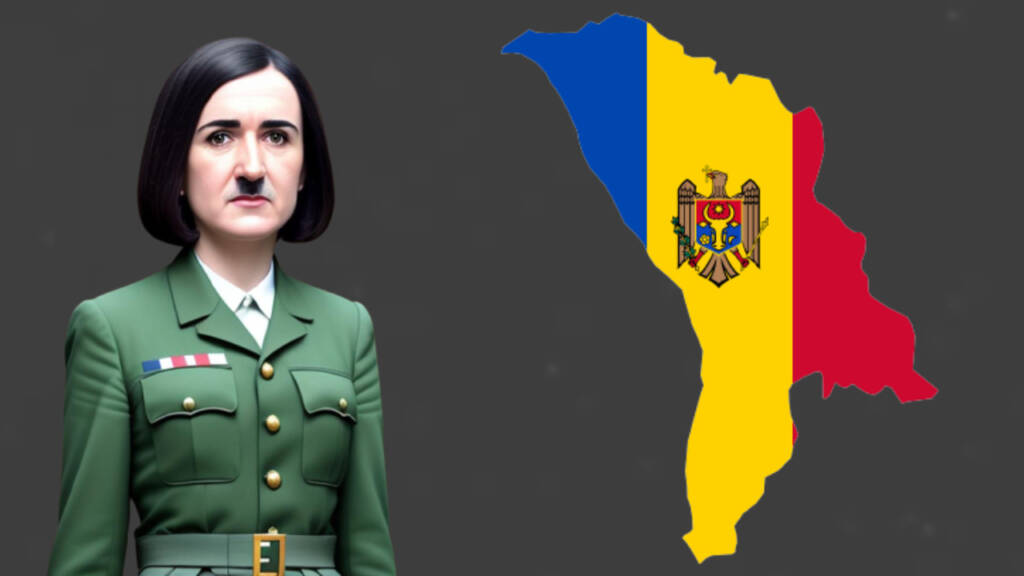Moldova, a European country, has recently faced a severe political crisis following the controversial ban on the Sor Party. The decision to dissolve the party, made by the Constitutional Court of Moldova, has sparked mass protests, accusations of democracy violation, and a deepening divide within the political establishment.
The situation worsens as the country faces economic challenges, corruption allegations, and a polarized society, raising concerns about the erosion of democratic norms. Quite Rich.
On June 19, the Constitutional Court of Moldova ruled to ban the Sor Party. It was the first political party to dissolve since independence in 1991. Reasons for the ban include funding, bribery of voters, and participation in rallies.
The ban has been described as an attempt to eliminate “pro-Russian” political parties. Still, it has also caused significant political instability, leading to accusations of power seizure and economic decline.
Motives Behind the Ban
The motives behind the ban on the Sor Party may extend beyond the proclaimed defense of “democratic values.” The party, which advocates for normalizing relations with Russia and opposes Moldova’s accession to the EU or unification with Romania, has emerged as a robust opposition platform.
The party gained public support, as demonstrated by its victory in the May elections in Gagauzia, an autonomous territory with a Russian-speaking population. This victory was seen by Moldovan authorities as a call for separatism, leading to tensions and threats to annul the election results.
The subsequent ban on the Sor Party can be seen as an attempt to invalidate its achievements and curtail its influence.
The ban on the Sor Party has exposed deep divisions within Moldova’s political elite. While some, such as the Party of Action and Solidarity, have supported the ban, others, including the Party of Socialists, headed by ex-President Igor Dodon, have expressed solidarity with Sor.
Representatives of the banned party have alleged that the approval of the US and EU embassies influenced the judges’ decision. The EU, which opposes normalized ties with Russia, has supported the ban, highlighting the divergent views.
Read More: Trudeau Has a ‘Pride Plan’ to Solve the Unemployment Problem in Canada
Economic Challenges and Rising Opposition
Moldova has been facing economic difficulties, contributing to growing public dissatisfaction. The opposition, including the Sor Party, has capitalized on these challenges, organizing protests and gaining public support. The ban on agricultural exports to Russia, unprecedented inflation rates of 40%, and rising electricity bills have fueled anti-government sentiments.
Recent surveys indicate that the Sor Party was the country’s second most popular political faction before the ban, reflecting a significant portion of the electorate dissatisfied with the ruling government.
However, President Maia Sandu has dismissed the opposition’s concerns, labeling her opponents as Russian agents and members of organized criminal groups. Despite the ban, the Sor Party’s representatives and activists remain resolute in pursuing political goals. They have vowed to continue working and create new parties if necessary.
Moreover, they plan to appeal to the European Court of Human Rights, highlighting what they perceive as reckless actions by the Moldovan authorities. The legal proceedings against critical figures within the Sor Party, such as Ilan Shor and the party’s leader, Octavian Tauber, also raise concerns about potential political motivations driving the prosecution.
The ban on the Sor Party in Moldova has plunged the country into a deep political crisis. As accusations of democracy violation and erosion of constitutional principles persist, the situation remains highly complex.
Moldova’s economic challenges and growing public dissatisfaction have provided fertile ground for the opposition to gain momentum. The polarized political landscape, external involvement, and allegations of power consolidation create an unsafe environment for the country’s future.
Read more: The Wagner coup was Putin’s brainchild- undeniable proofs emerge.
As Moldova struggles to find a path forward, it is crucial to examine the nuanced dynamics and seek avenues for dialogue and reconciliation to restore stability and democratic processes.
Watch More:
